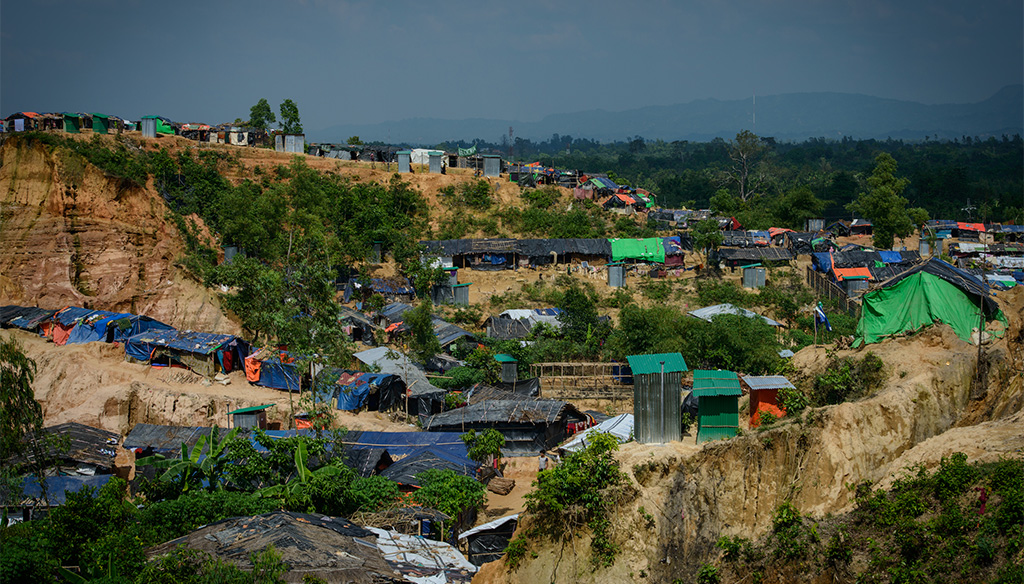We honor the life of George Verwer, our founder. Read More

Jiabur is a Rohingya father who fled Myanmar to Cox’s Bazar, the world’s largest refugee settlement in Bangladesh. He watched from the jungle as soldiers attacked his village, tied up the men in one location and kept the women and children in another. For two days, the soldiers plundered their homes, beat the residents and raped unmarried women. When the soldiers moved to another village, nearly everyone fled for safety.
Jiabur and his son escaped to Bangladesh, forced to leave his wife and six other children, who were captured. Jiabur confesses how helpless he feels, “My [nine-year-old] son keeps asking me, ‘Where is our house…our land? When will we go home?’ But I have no answer.”
Another child in the camp, four-year-old Abdul, declares simply, “I saw dead bodies and the soldiers, but I was not afraid.” Many other children around him show stoic faces too. The atrocities they experienced left scars not visible on their tiny bodies.
“I was cooking in the house, and my husband was in the yard with our son,” says Sabekur, an 18-year-old mother. “When he saw the military [coming], he left our son and fled [to draw the attackers away]. The soldiers caught him and cut him [with a machete]. Then they beat him and shot him on the ground.”
She grabbed her three-month-old son from the sand where he’d been left and ran.
“For three days we hid in the jungle. I was so afraid. Then I saw many people leaving to cross the border and I thought, ‘Why should we stay?’”
With nothing but the clothes on her back, Sabekur carried her son for five days to get to the border and finally arrived at a refugee camp. “I have no family left. I am alone and now my son has no father.”
The Rohingya are a Muslim minority group continuing to arrive in Bangladesh to escape what the United Nations is describing as ethnic cleansing. As of the most recent reports, about 900,000 refugees from Myanmar have sought safety in Bangladesh. The UNHCR declared the situation “the world’s fastest growing refugee crisis and a major humanitarian emergency.” Families are broken, lives are lost and home is a distant memory.
OM is partnering with organizations to send teams from the capital city to the refugee camps in Cox’s Bazar. Child Friendly Spaces (CFSs) are being established where children receive psychosocial first aid and psychosocial support. Staff spend time with children, cutting their nails, combing their hair, praying over them and making sure they feel valued and loved.
“As believers, we need not only pray, but do! We must act to see God’s kingdom on earth.”
Even still, the need for physical relief and spiritual truth remains great. As one missionary says, “The Lord’s prayer asks that God bring His kingdom here on earth, just as it is in heaven. What does that mean? When you consider there’s no homelessness in heaven, I think it means we need to get moving! As believers, we need not only pray, but do! We must act to see God’s kingdom on earth.”
OM remains committed to reaching grieving refugees with practical assistance and the good news of Jesus.